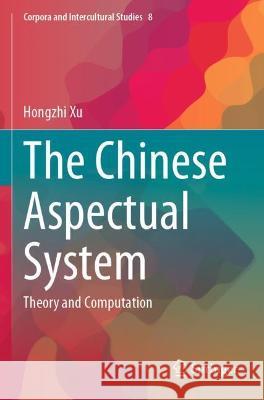The Chinese Aspectual System: Theory and Computation » książka
topmenu
The Chinese Aspectual System: Theory and Computation
ISBN-13: 9789811634109 / Angielski / Miękka / 2022
This book presents a theoretical study on aspect in Chinese, including both situation and viewpoint aspects. Unlike previous studies, which have largely classified linguistic units into different situation types, this study defines a set of ontological event types that are conceptually universal and on the basis of which different languages employ various linguistic devices to describe such events. To do so, it focuses on a particular component of events, namely the viewpoint aspect. It includes and discusses a wealth of examples to show how such ontological events are realized in Chinese. In addition, the study discusses how Chinese modal verbs and adverbs affect the distribution of viewpoint aspects associated with certain situation types.











